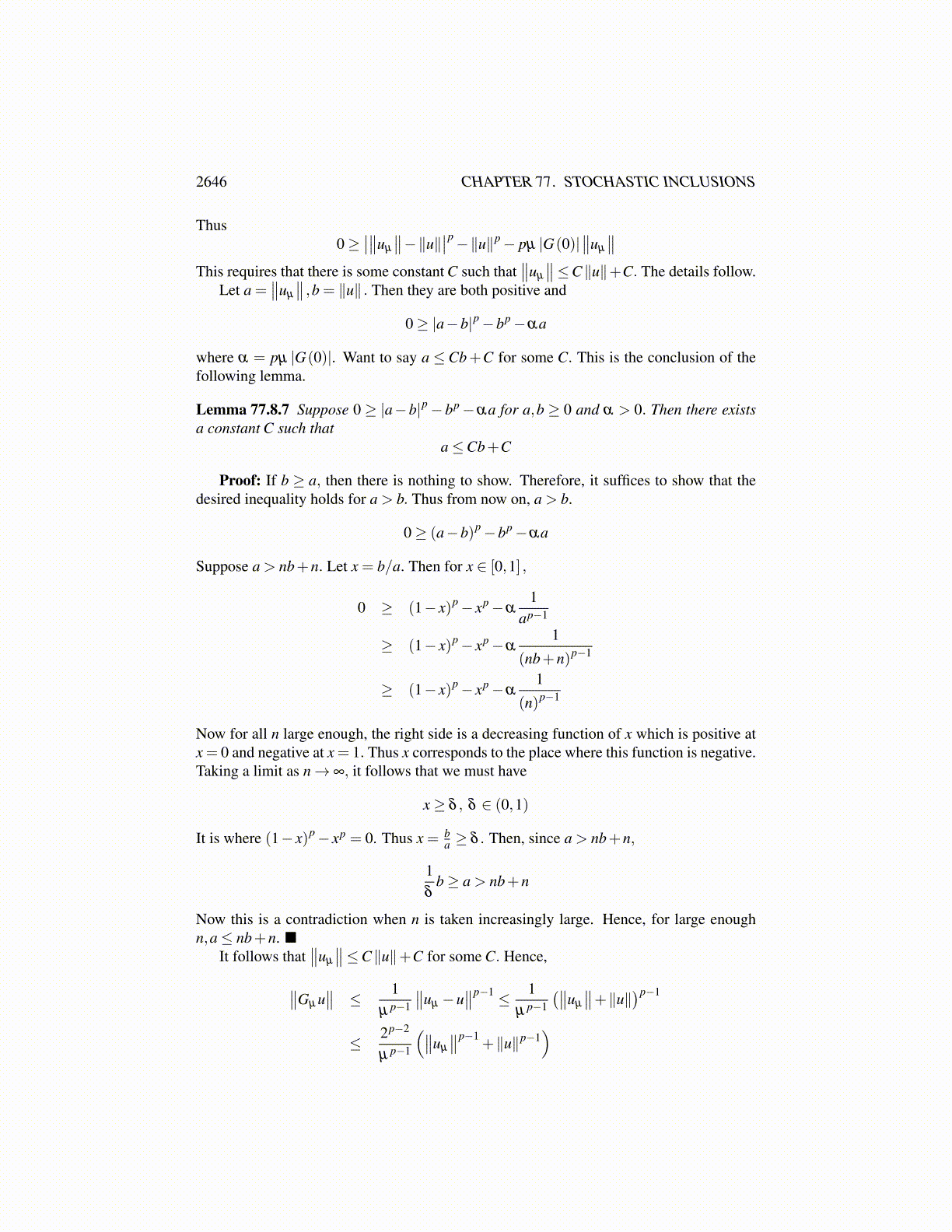
2646 CHAPTER 77. STOCHASTIC INCLUSIONS
Lemma 77.8.4 Suppose A is a set valued operator, A : X →P (X) and u∗n ∈ Aun. Supposealso that un→ u weakly and u∗n→ u∗ weakly. Suppose also that
lim supm,n→∞
⟨u∗n−u∗m,un−um⟩ ≤ 0
Then one can conclude thatlim sup
n→∞
⟨u∗n,un−u⟩ ≤ 0
Proof: It is assumed that
lim supm,n→∞
(⟨u∗n,un⟩+ ⟨u∗m,um⟩− (⟨u∗n,um⟩+ ⟨u∗m,un⟩))≤ 0
Then is it the case that limsupn→∞ ⟨u∗n,un⟩ ≤ ⟨u∗,u⟩? Let µ equal limsupn→∞ ⟨u∗n,un⟩. Thenin the above, it implies
(2µ− (⟨u∗n,um⟩+ ⟨u∗m,un⟩))< ε
whenever m,n large enough. Thus taking limsupn→∞ limsupm→∞ of the above, you get
(2µ− (⟨u∗,u⟩+ ⟨u∗,u⟩))< ε
Thus you at least need µ ≤ ⟨u∗,u⟩. That is, limsupn→∞ ⟨u∗n,un⟩ ≤ ⟨u∗,u⟩ . Hence
lim supn→∞
⟨u∗n,un−u⟩= lim supn→∞
⟨u∗n,un⟩−⟨u∗,u⟩ ≤ ⟨u∗,u⟩−⟨u∗,u⟩= 0
Definition 77.8.5 Let xµ just defined be denoted by Jµ x and define also
Gµ (x)≡−µ−(p−1)F
(xµ − x
).
This xµ is defined as follows.
0 ∈ F(xµ − x
)+µ
p−1Gxµ
Later, we will write Jµ u for uµ . Thus
0 = F(Jµ u−u
)+µ
p−1zµ , zµ ∈ G(Jµ u)
Also from this definition,
Gµ (u) =−µ−(p−1)F
(Jµ u−u
)= zµ ∈ G
(Jµ u)
Then there are some things which can be said about these operators.
Theorem 77.8.6 The following hold. Here V is a reflexive Banach space with strictlyconvex norm. G : D(G)→P (V ′) is maximal monotone. Then
1. Jµ and Gµ are bounded single valued operators defined on V. Bounded means theytake bounded sets to bounded sets. Also Gµ is a monotone operator.